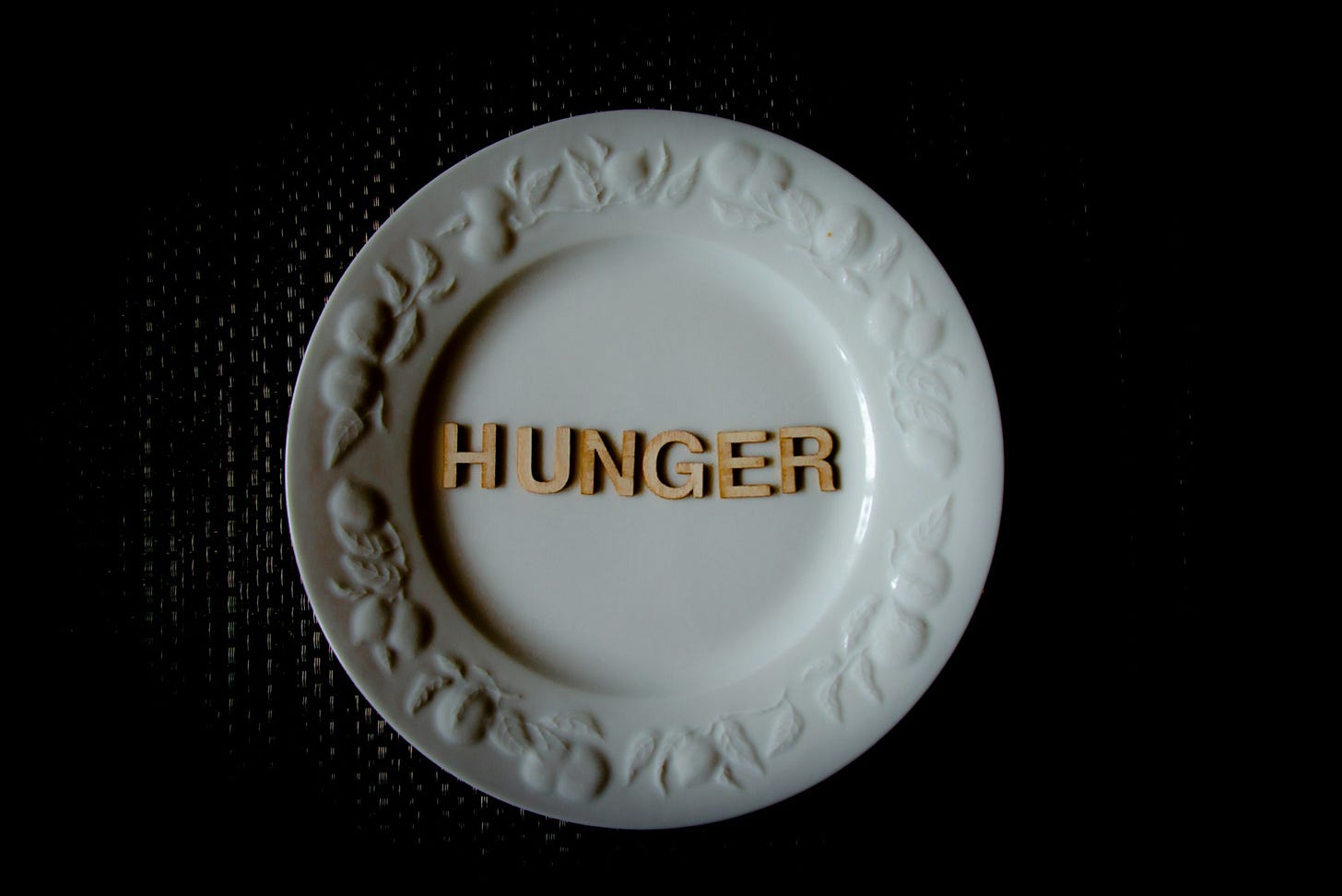The Truth About Poverty, Diet, And Quality of Life

We live in a world of wealth.
Many of the things we have today, the things we take for granted, would have been unimaginable luxuries to the people of the past. Vehicles like cars and planes, clean drinking water, medicines and vaccines. Air conditioning, imagine living without air conditioning! The convenience of walking into a grocery store and leaving with a cart full of ingredients for any meal you can imagine.
Of course, I’m writing from the perspective of someone growing up in North America, where these things are commonplace. Not everywhere in the world is so fortunate as to have clean water, medicines, or access to good food. Certainly not air conditioning…even electricity can be scarce, depending on where you live.
In fact, even here where I live, these things aren’t a given. For people living in poverty, the things you need to ensure a good life- food, clean water, medicine-can be difficult or even impossible to acquire.
There are lots of things I’ve listed here that I could talk about, and undoubtedly, I will rant about them at length in future articles. But I’d like to talk about one in particular today.
Today I would like to talk about food. Specifically, I'd like to talk about food insecurity.
Food Insecurity
Food insecurity is a common side effect of poverty.
If your childhood was anything like mine, it might have manifested in a few different ways. Maybe you got used to the feeling of going to bed hungry; in fact, you probably slept a lot and drank a lot of water just to conserve energy and keep the hunger pangs at bay.
Maybe rather than being hungry, you just had to make do with a handful of cheap and easy meals. Fast food, chips, hot dogs, or plain bread. A lot of my lunches at school consisted of the classic ketchup sandwiches.
Instead of pizza, I got slices of bread- always Wonder Bread, of course- with hot dog chunks, Kraft singles cheese and a little spaghetti sauce. We would bake them in the oven and eat them crispy like toast.
Those cartoons where kids are handed a plate of vegetables and start gagging, or even feed them to the dog when mom's not looking- that totally wasn't me! Spinach was my favorite snack. Sliced cucumber and tomato, sprinkled with salt- that was a treat to me.
The only time I ever got to eat vegetables were when my grandmother's garden produced some. Produce from the grocery store was too expensive. To this day, I'll take sliced cukes over chips any day.
A lack of access to good produce is a serious problem. Poor nutrition can cause everything from obesity and diabetes to serious mental health concerns like anxiety and depression.
Food Insecurity and Mental Health - PROOF
I wrote a bit about this in my previous article on Sacrifice Zones. In that article I mention how poverty directly leads to diet related diseases. If an apple costs three dollars, but a bag of chips costs one, which do you choose?
Three bags of chips will last you longer than one apple.
That's the kind of math that poverty forces you to do. If you're a parent and your child is hungry, you want to provide them with the best and healthiest food available. But if you have to choose between the occasional healthy snack with long stretches of hunger or eating unhealthy food regularly...well.
All of this assumes that healthy food is even available to you in the first place.
Food Deserts
In low-income areas, especially urban settings, your choices for food can be extremely limited.
Agriculture is costly. Shipping produce is expensive. Fresh vegetables and fruits are difficult to transport from farm, to grocery store, to table. The costs of that effort are often passed on to the customers.
First of all, you have to grow them. Then you have to harvest and sort them, because unsightly and misshapen fruits, while perfectly fine to eat, don't tend to sell very well. It costs money and labor to harvest and pack them for sale, and they don't give a good return on investment, so...
A lot of the fruit and vegetables that we grow are wasted and thrown out to rot.
Study Finds Farm-Level Food Waste is Much Worse Than We Thought
I'll definitely be writing an in-depth article about food waste in the future.
When the food you're shipping is more shelf-stable, it's a lot easier for everybody. You don't need to worry about breaded frozen chicken fermenting in its sealed bag, so long as you keep it cold. Canned meals and bags of sugar-filled cookies don't really go bad.
For low-income areas, far away from agriculture centers, the price of fresh produce can be astronomical. The majority of people living there simply can't afford to waste money on it while they're worrying about making rent on time.
If you've ever wondered why there are so many fast-food chains packing the streets in the poorer side of your town, this is a big part of it. There's a vast market of hungry people who need cheap, filling meals for their families.
As you might imagine, this has terrible implications for people's health.
Food Related Illness
When we think about getting sick from food, we probably tend to think of food poisoning.
Salmonella, E. coli, listeria, things like that. And that's definitely a real concern, no question. But there are much bigger and more long-lasting concerns to consider as well.
If you live in Canada like I do, your healthcare is paid for through taxes. Even when we were struggling with poverty, at our very lowest point, my family could still count on medical care. We never had to worry about medical debt.
If you live in the States though, and you develop diabetes from a poor diet...if you're already struggling with paying the bills, the cost of diagnosis and treatment is only going to make life harder.
I know a lot of American citizens who have a 'wait and see' philosophy when it comes to potential health concerns because they just can't risk being charged for a doctor visit.
Like I pointed out above, food insecurity leads to pretty difficult choices. Healthy and nutritious food may simply not be available to you. And eating a diet that's heavy in saturated fats, sodium and sugar can cause any number of problems.
Everything from increased risk of diabetes, heart disease and stroke, musculoskeletal problems like arthritis and inflammation, all the way up to some forms of cancer can be caused by poor diet.
Poor Nutrition | CDC
The food you eat can severely impact your health. If you live in a country with privatized healthcare, the burden of that cost will land on your shoulders. If you live in a country with nationalized healthcare, the burden falls on taxpayers.
Food Access and Poverty Solutions
So, what can we do?
There is always the classic option of donating to local food banks and soup kitchens, of course. If you want the most bang for your buck, I'd recommend donating money instead of the canned foods in your larder. I know that's the common food drive play, give them the 'meh' foods that you won't eat anyway, but think about it.
Isn't it better for everybody if the soup kitchen can provide healthy food instead of shoving canned beans at the homeless? If you don't want to eat it, why would a poor person enjoy it?
Some soup kitchens even accept produce from people's home gardens. If you get a good harvest out of your personal garden, consider calling around to the soup kitchens in your city to find out if they accept fresh food donations. Not all of them will, but you might get lucky.
If you have a platform, try starting a fundraising trend. Remember the Ice Bucket Challenge? There are loads of good charities across the world that are working to help end food insecurity for all, and creating a social media campaign to raise awareness can really give them a boost.
Maybe something like, I don't know...Donate to Feeding America or dye your hair green. Spinach Head Challenge? It might be best if I let someone cleverer than me come up with the idea.
Hunger in America | Feeding America
Streaming for charities is another great option if you have enough of a following on YouTube or Twitch.
You can also contact your representatives in government to push for greater funding for school lunches, better social programs and other such measures to provide safety nets for low-income families. Sometimes a school-provided lunch might be the only meal a kid gets.
However you choose to help, spreading awareness and learning more about the problem of food insecurity can help make a difference for people in poverty.
Being willing to extend a hand to someone in need can make all the difference. Every small act of aid, even something as simple as bringing your neighbors a hot home-cooked meal, can save a life.
Solidarity wins.


